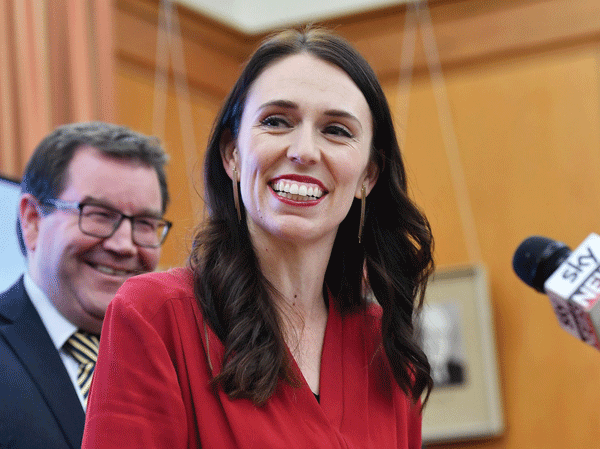
Female leaders have been praised for their roles in response to COVID-19, but remain under-represented in decision-making.
International Women’s Day 2021 focuses on the role women can play in “building back better”, thanks to their different skills and experience.
Women have been disproportionately affected by the pandemic, representing 54% of overall job losses.
But the “role model effect” is helping to close the gender gap, Forum research shows.
The crucial role played by women in the ongoing recovery from the COVID-19 pandemic is being celebrated this International Women’s Day.
“Women in leadership: Achieving an equal future in a COVID-19 world” is the theme for International Women’s Day (IWD) celebrated today.
This year’s IWD aims to highlight the role women have been playing at the forefront of the global health crisis — as health workers and caregivers, community organisers and innovators. Women have also been acknowledged as some of the most effective leaders during the pandemic, with female heads of government, including New Zealand Prime Minister Jacinda Ardern, having been praised for their handling of the crisis.
A more collaborative approach
- Chamisa under fire over US$120K donation
- Mavhunga puts DeMbare into Chibuku quarterfinals
- Pension funds bet on Cabora Bassa oilfields
- Councils defy govt fire tender directive
Keep Reading
In May 2020, at the height of the outbreak, 21 countries had a female head of government or State, according to UN Women.
Female medical and health experts were also increasingly found in leadership positions and taking the lead in press briefings in Canada, Ethiopia, India and Madagascar.
Lack of female voices at all levels
Yet women remain woefully under-represented at all levels of decision-making worldwide.
They only account for a quarter of members of parliament and, as of January 1 2020, only 21,3% of ministers were women, according to UN Women. And while women make up 70% of health sector workers, only 24,7% of health ministers are female.
Women were also disproportionately impacted by the pandemic. McKinsey estimates that women’s jobs were 1,8 times more vulnerable due to COVID-19 than those of their male counterparts. While women make up 39% of the global workforce, they also account for over half of overall job losses during the pandemic.
A UN Women report in November 2020 found that while both men and women had seen their unpaid workloads increase during the COVID-19 crisis, women were more likely to increase the amount of time they spend on household chores and caring duties.
Gender parity for thriving societies
It is vital for policy-makers at all levels to recognise what women leaders are doing — and the challenges they face — to help them fully participate in “building back better” in a post-pandemic world, UN Women argues.
The issues raised for IWD 2021 echo those addressed by the Forum’s The Global Gender Gap Report, which argues that gender parity is fundamental for economies and societies to thrive.
Political empowerment is the area where women are most severely under-presented, with only 24,7% of the gender gap closed by 2020, the report says, followed by economic participation and opportunity.
However, the Forum’s gender report adds that a “role model effect” may be starting to have an impact in terms of leadership and pay, with signs that increased female political representation corresponds with a growing number of women in senior private sector jobs.
- World Economic Forum











